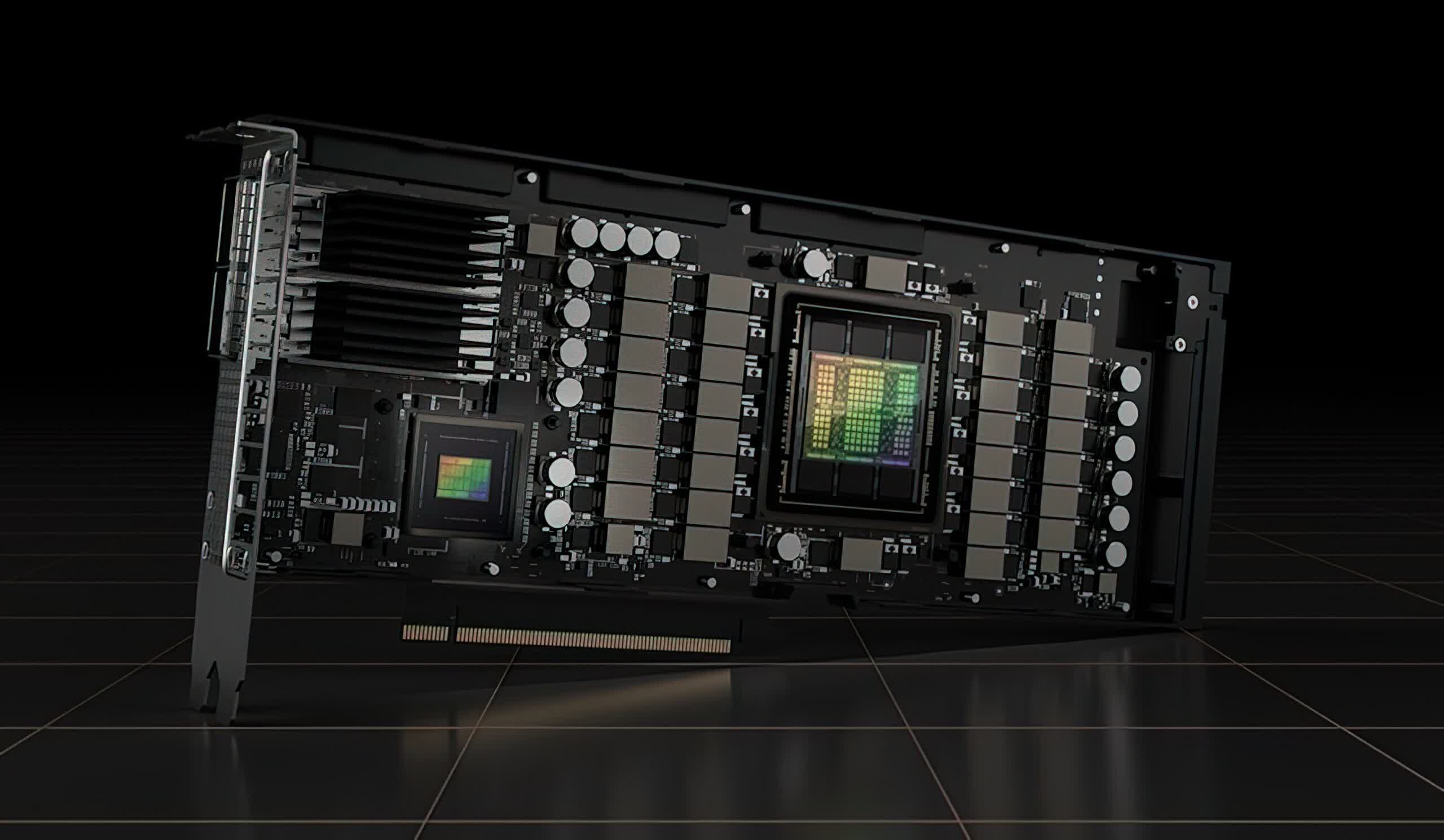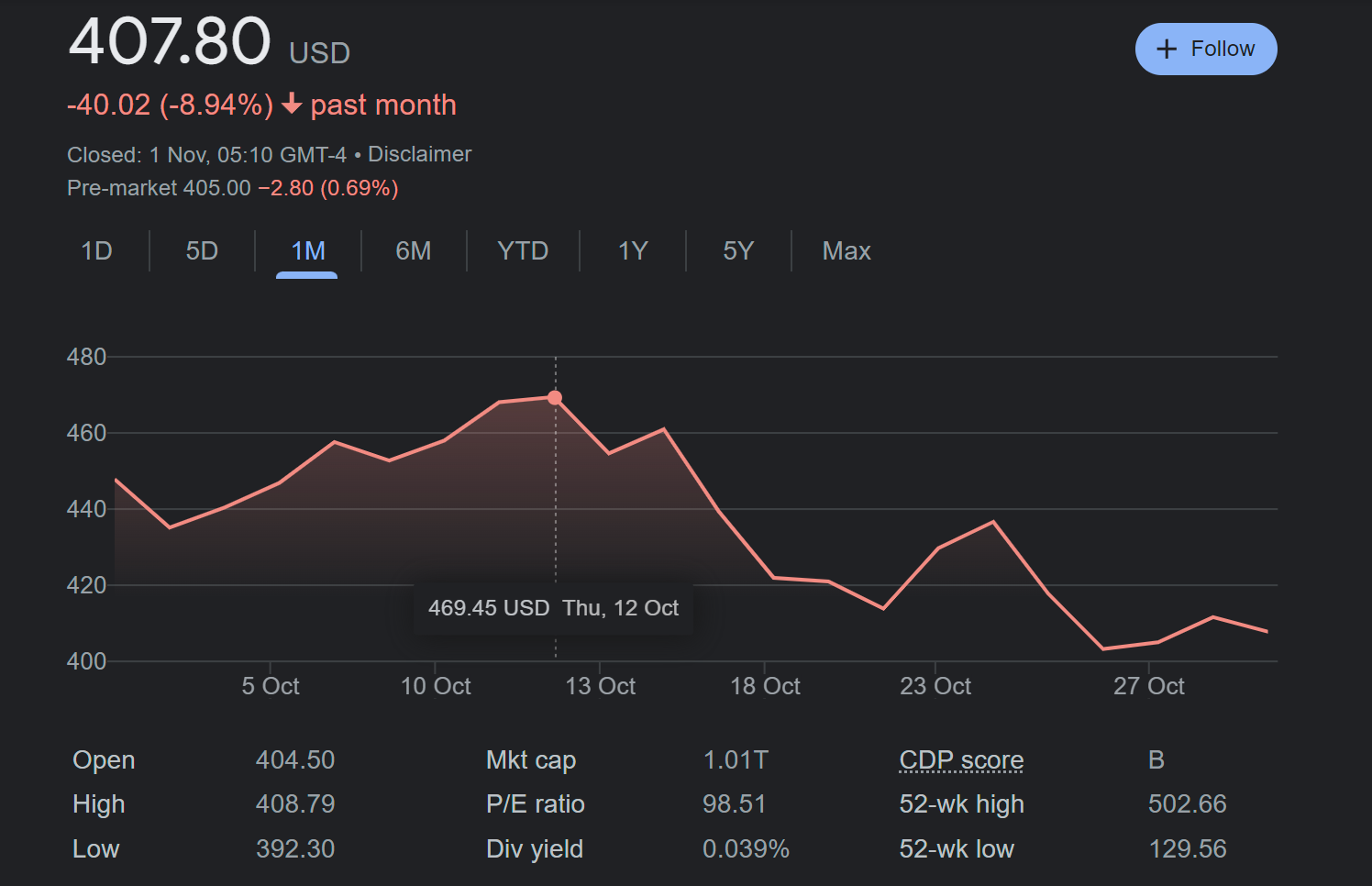What just happened? Nvidia's incredible year in which it became a trillion-dollar company took a rare stumble yesterday when Team Green's share price dipped almost 5%. The decline came on the back of a report that new US restrictions on the export of AI-focused chips to China could see up to $5 billion worth of Nvidia orders canceled.
In late October, the Department Bureau of Industry and Security (BIS) further tightened export restrictions on AI accelerators to China and other countries of concern, including Saudi Arabia, Russia, Iran, the United Arab Emirates, and Vietnam.
Restrictions on communication speeds, limited to a bidirectional transfer rate of 600 GB/s, were removed; instead, priority was given to those products with a total processing performance of 4,800 or more.
The change meant that the A800 and H800 – designed specifically for the Chinese market – were to join the banned list. Nvidia had said that the RTX 4090 also fell under the new rules' scope, but that no longer seems the case, likely because applicable products must also be designed and marketed for datacenters (Update: Reports from China now say the gaming flagship will be banned from sale in the country).
The Wall Street Journal writes that Nvidia was notified by the US Commerce Department last week that $5 billion worth of AI chip orders scheduled for delivery next year to major Chinese technology companies, including Alibaba Group, TikTok-owner ByteDance, and Baidu, are subject to the export restrictions.
Following the publication of the WSJ report, Nvidia's share price fell 4.7% to as low as $392.30. Reuters notes that this was its lowest level since mid-June and nearly 20% down from the record high of $493.55 on August 31.
The share drop saw Nvidia's market cap fall below $1 trillion, though it has since recovered slightly and now stands at $1.01 trillion.
Nvidia previously said that due to the strong worldwide demand for its products, it did not anticipate that the introduction of the restrictions would have a meaningful impact on its near-term financial results.
BIS officials wrote in the updated rules that they are open to the semiconductor industry's input for finding ways to keep sending AI chips to China for small and medium-sized systems. The current rules are designed to limit China's ability to build massive supercomputers that could be used for military purposes.

